Is Hamas responsible for current suffering in Palestine?
Exclusive Interview with Palestinian Academic Dr. Belal B.S. Salhab - Part I
Prepared by
Iftekhar Jamil Fuad & Muhammad Mahyuddin Bin Mansor
Is the conflict in the region best characterized as being against Jews or Zionists? Could you provide some historical context to help us understand this perspective?
For a more comprehensive understanding, let's delve into history. It becomes challenging to grasp the Palestinian cause without a historical background. Following World War I, the Ottoman Empire's collapse led to Western countries taking control of the Middle East, dividing it among European nations. The British Empire occupied Palestine and eventually granted it to the Jewish population. Jews arrived in Palestine, bringing with them their false narratives and claims, leading to a series of events that saw them replace the British Empire. This serves as an overview of the historical context, and it's important to note that we can't delve into all the details here. In 1948, Zionists occupied Palestinian lands with thousands of genocides and atrocities.
Now, it's crucial to differentiate between Jews and Zionists because not every Jew is a Zionist. Our struggle is against Zionists, not against Jews. We do not have any issues with Jews, as they have historically coexisted with Muslims without problems. They have lived in places like Medina, during the Khilafat Rashida, in the Umayyad Empire, the Abbasid Empire, and the Ottoman Empire. Even today, they live in Yemen, Morocco, and Turkey without issues. What does this mean? It means our problem is with Zionists, not with Jews.
As Allah said:
"Allah does not forbid you from dealing kindly and fairly with those who have neither fought nor driven you out of your homes. Surely Allah loves those who are fair. Allah only forbids you from befriending those who have fought you for your faith, driven you out of your homes, or supported others in doing so. And whoever takes them as friends, then it is they who are the true wrongdoers." (Quran 60:8-9)
Based on this, we do not have any issues with any religion. So, who are the Zionists? They are a secular movement that came to Palestine to occupy, displace its original population, and even kill them. The Zionists used religion to legitimize their occupation, which is where the conflict began.
To provide greater clarity, was there any conflict between Muslims and Jews in Palestine before the Zionist movement?
No, there was not. This absence of conflict extends beyond just Palestine; we have had harmonious relations with Jews throughout the Muslim world. In Palestine, Christians continue to coexist with Muslims, constituting an integral part of Palestinian society. They worship in their churches without any issues, and it's often challenging to discern who is Muslim and who is Christian based on appearance alone. You would only know someone's religion if they explicitly shared it, as there are no visible differences. Our respect for people of various faiths is deeply ingrained in our philosophy and stance. The Prophet, peace be upon him, allowed Jews to live in his state under the Medina Constitution. The Prophet's conflicts with certain Jewish groups were due to their actions, not their beliefs. This enduring spirit of coexistence and tolerance shapes our perspective.
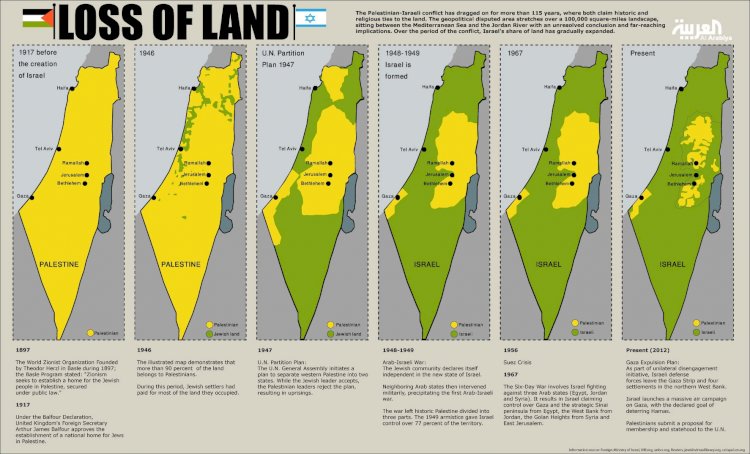
Is there any available data on the percentage of Jews who identify as Zionists?
Zionists originate from various countries. Some come from the USA, others from Europe, and others from Russia. As a result, each Zionist possesses dual nationalities – one in Israil (Occupied Palestine) and another in their country of origin. Presently, there are approximately six million individuals in this group, all of whom identify as Zionists.
Why Western countries support the Zionists?
There are two reasons.
On one hand, they aim to preserve their interests in the Middle East through the Zionists and influence other Muslim nations.
On the other hand, they seek to eliminate the Jews from their own countries, as they view them as a problematic society. The last time Joe Biden visited Israel, he remarked, 'If there were no Israel, we would create one’
In brief, could you provide an overview of the historical periods in Palestine?
Before the advent of Islam, Palestine was governed by the Canaanites, who were Arabs. Prophet Musa (peace be upon him) instructed the Jews to enter Palestine, but they declined, citing the presence of an exceedingly formidable people—the aforementioned people being the Canaanites.
‘O my people! Enter the Holy Land which Allah has destined for you to enter. And do not turn back or else you will become losers. They replied, “O Moses! There is an enormously powerful people there, so we will never ˹be able to˺ enter it until they leave. If they do, then we will enter!”(5:21-22).
In Islamic history, Palestine was conquered by ʿUmar ibn al-Khaṭṭāb through a peace treaty. Subsequently, it fell under Crusader occupation before being reclaimed by Salahuddin al-Ayyubi. In the past century, it was once again occupied by Zionists, and presently, efforts are underway to defend and reclaim Palestine in an ongoing conflict.
As an academic from Palestine, how would you describe the Palestine issue to the world, emphasizing its political, and humanitarian dimensions?
This cause extends beyond being solely Palestinian; it is, above all, an Islamic cause. This significance arises from the integral role Palestine plays in Islamic beliefs, as highlighted in the Holy Quran and prophetic tradition. The connection between Isra' and Mi'raj and Palestine underscores its profound importance. Masjid Al-Aqsa holds the status of the third most significant religious site in Islam, emphasizing that, like Mecca and Medina, it is not exclusive to a specific nationality.
Regardless of nationality, language, color, or race, every Muslim bears rights and responsibilities in this conflict. Masjid Al-Aqsa, being an Islamic Waqf and endowment, allows every Muslim to assert their rights and fulfill their responsibilities regarding Palestine. This commitment is intrinsic to our religion, beliefs, identity, and culture.
Would adopting a stance that frames this as a national-ethnic or a struggle between rich and poor present challenges?
mentioned earlier, categorizing this issue solely as religious or national is inadequate. We don't harbor issues with any religion. If we limit it to a national matter, we exclude Muslims from asserting their rights and responsibilities. It's imperative to articulate everything from an Islamic perspective for a comprehensive understanding.
Now, if everything is viewed through an Islamic lens, why would non-Muslims rally behind the Palestinian cause?
alestinians rightfully deserve ownership of their country. The intrusion, occupation, and expulsion of rightful owners are universally unjustifiable. Support for the Palestinian cause transcends religious affiliations; it's a call for logical, humane solidarity. Numerous non-Muslims today understand that occupation cannot be justified by any means and consequently lend their support to the cause.
This time, the conflict appears to have started with actions by Palestinians, particularly Hamas. Do you believe that Hamas bears responsibility for the suffering of the people in the region? Could you elaborate on the broader context of this situation?
The conflict didn't originate with actions by Palestinians, specifically Hamas. The roots trace back to Israel and Zionists when they occupied Palestine in 1948. This war wasn't initiated on October 7th, placing blame on Palestinians, particularly Hamas. From the start, Israel and Zionists have persisted in their atrocities, resulting in casualties, home occupations, and mass expulsions.
The Palestinians, including Hamas, are defending their lands and properties against longstanding aggression. The people in Gaza, enduring a blockade for over than 16 years, face dire living conditions with limited resources, electricity, and healthcare. Israel's repeated wars against Gaza, including in 2008, 2012, 2014, and 2021, contribute to the ongoing conflict. The blame rests primarily and ultimately with Israel.
This time, Israel had intentions to initiate another war following their religious festival, compelling the people in Gaza to take preemptive measures to safeguard themselves against an imminent invasion. Consequently, the responsibility for the onset and continuation of this situation squarely lies with Israel, both in its initial actions and ongoing developments.
Are Palestinians exerting any pressure to normalize relations with Israel and avoid these dire situations?
On social media, one can observe how individuals in Palestine respond to these casualties. Numerous videos depict people expressing solidarity with the resistance, emphasizing their actions for Allah, the beloved Prophet, and the protection of Masjid Al-Aqsa. Despite the hardships of losing homes and loved ones, there isn't a single video where someone advocates acceptance of the occupation.
Palestinians understand that the resistance is fighting not for their interests but for Islam and all Muslims. This is a challenging experience for them, losing homes and loved ones, but they believe it's the only way to protect their country, religious places, and identities, even though the price is very high.
Can you shed light on why there is a focus on the demolition of mosques and universities by Israel? What do these actions represent within the context of the conflict?
There is a lot of focus on the destruction of mosques and universities, taking the lives of great scholars, and even one of our former students of IIUM, Dr Taisir Ibrahim, was killed recently. This is because thousands of Memorisers of the Holy Quran are produced from these mosques every year who understand the Quran deeply and are very strong in their belief. This is exactly what the Zionists do not want, as they wish for humans to only follow their desires and be engrossed in money, and only focus on personal interests and worldly affairs.
In Gazan mosques, there are no such desires and worldly distractions, but only gatherings for the remembrance of Allah and learning about the Quran and memorizing it, such that people of all ages and genders, and even the elderly, can memorize the Quran. Therefore, by destroying these centers of knowledge and killing scholars, they hope to cease any more awareness and understanding of Islam and the Quran within the people.
When you want to build a generation, you must build it up with knowledge. You must educate the people because believing in something can only start from knowing it. Once the belief is strong, only then can the people fight for that belief, with knowledge. Thus, the Zionists really see the power of knowledge, scholars, and places of study, and are extremely averse to dealing with a generation that is connected to their belief, their Quran, and the Sunnah of their Prophet ﷺ, and have therefore decided to destroy everything to stop any and all awareness and understanding of the actual situation.
The Islamic University of Gaza was established more than 30 years ago, what roles have the university performed for the Palestinian Cause?
The role of the Islamic University of Gaza, and frankly any Islamic university, is to raise awareness and form sound thinking. There are many areas of specialization within the university, including Islamic Law, Arabic Language, Engineering, Medicine, Communication, and many more, just like the International Islamic University of Malaysia or the University of Madinah, or any other Islamic university.
Now, the Zionists want ignorance. They want the people to have no knowledge, for no one to raise their heads from this ignorance. This way, nothing new will be produced by anyone, and no one opposes them in any way, shape, or form. They have thus declared war on everything; on knowledge and understanding, on ethics, and on centers of true knowledge, awareness, and proper understanding, such as mosques and schools.
In the areas occupied of 1948, the Jews turned mosques into wineries, such that there were large statistics of drinking among those people and documentation of this available for reading. Drugs were also widespread, and murders became common. By spreading alcohol and drugs throughout society, the Jews had successfully made the people become preoccupied with worldly pleasures and desires, thus pushing the Muslims further from their cause, from their faith, and from their Quran. This way, there was no longer any fight against the Jews.
Why does Palestine seek assistance from countries like Iran?
There have always been mutual benefits for both Iran and Palestine, not on any basis of ideology or belief, but of general benefits, mutual interests, they are united by the hostility of the Zionists and the like. Iran has assisted Palestine for quite some time, and as Muslims in crisis, being Sunni or Shi’i did not matter. The only thing that we cannot accept as Sunni Muslims is if Iran sets a condition that we must accept their ideology and beliefs, then that is not acceptable. Apart from that, all forms of support are very much welcome.
So when they began wanting to spread Shi'ism in Gaza, we had to refuse, and they withdrew this effort. The reality of the situation is, that there is not a single Shi'i in Gaza, which goes to show that the Iranians never affected the beliefs or ideology of the Palestinians, not even one.
The bond of resistance was purely a bond of welfare only, and its proof is that there is not a single Shi'i in all of Palestine.
Dr. Belal B.S. Salhab is an Assistant Professor in the Department of Fiqh and Usul al-Fiqh at AHAS KIRKHS, International Islamic University Malaysia.
Iftekhar Jamil Fuad and Muhammad Mahyuddin Bin Mansor are undergraduate students in the Department of Fiqh and Usul al-Fiqh at AHAS KIRKHS, International Islamic University Malaysia.
Disclaimer
The views expressed in this article are the author’s own and do not necessarily mirror Islamonweb’s editorial stance.

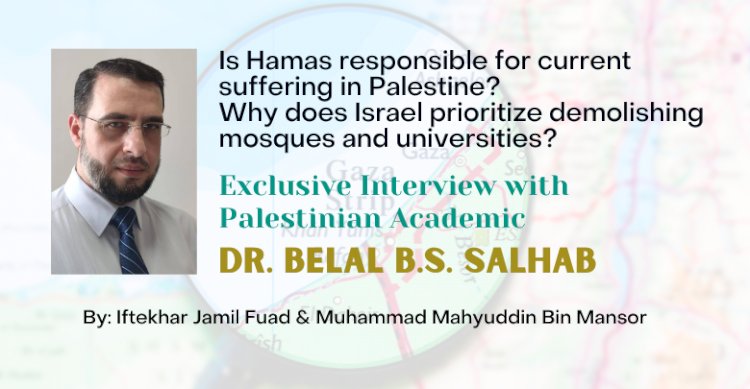


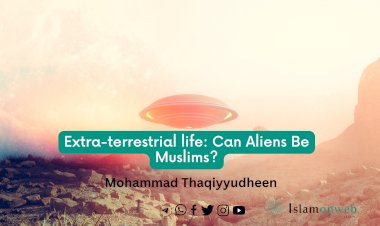
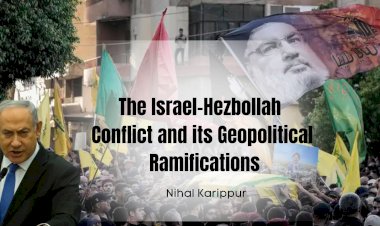
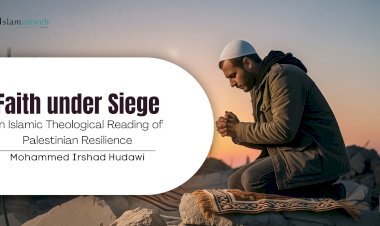
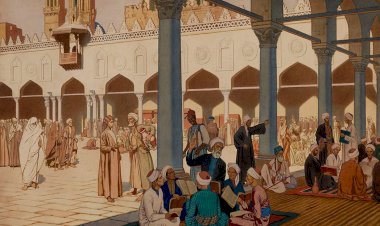
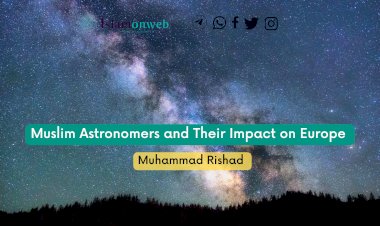
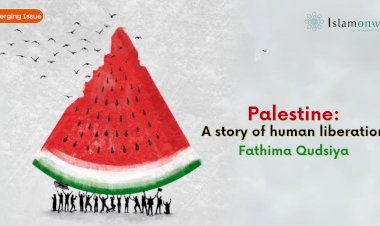














Leave A Comment